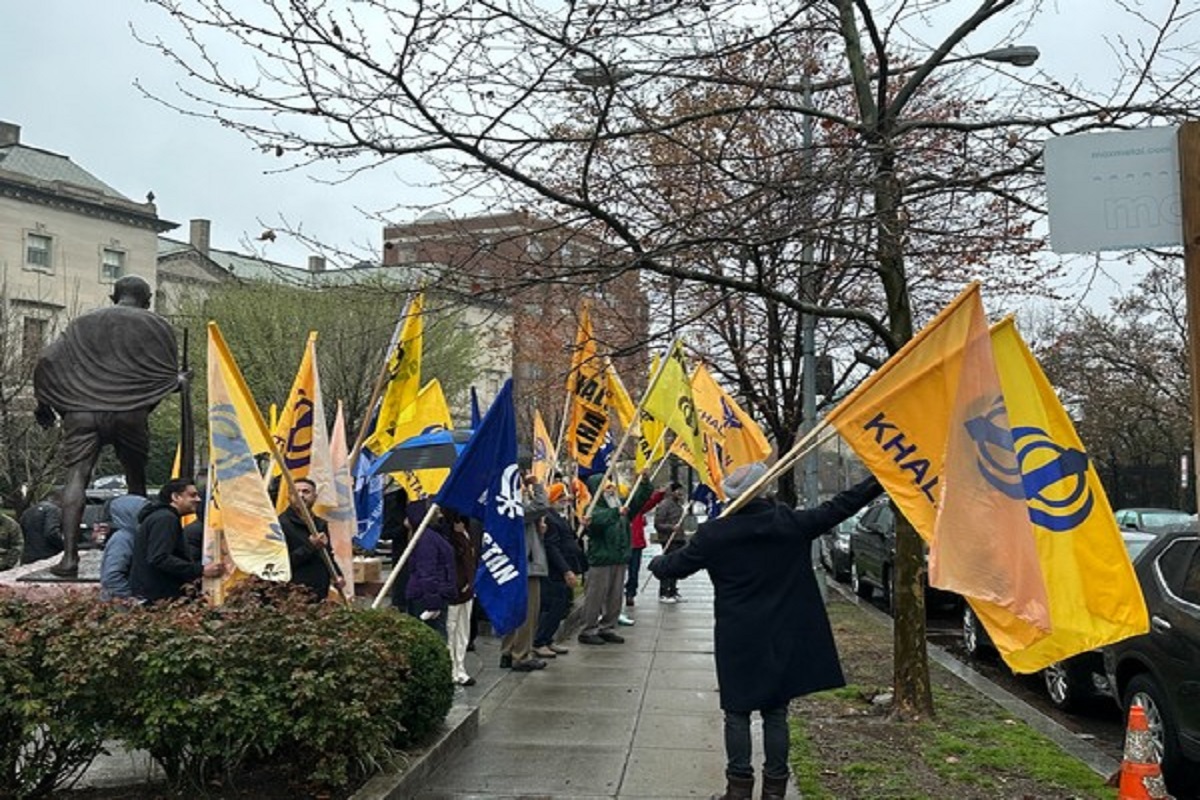As India and Canada remain locked in an intense diplomatic row over a Khalistani terrorist’s murder, Indian Hindus living in Canada have become soft target of extremists. Ever since the row over killing of Hardeep Singh Nijjar broke out, Canadian Hindus of Indian descent are being bullied, threatened and asked to leave by Khalistani terrorists, who enjoy a free run under Justin Trudeau’s government.
Nijjar, whom New Delhi designated a terrorist in 2020, was shot dead by two masked gunmen in the parking lot of a Gurudwara in Surrey, British Columbia on June 18. Canadian Prime Minister Justin Trudeau alleged Indian government’s link in his killing, a charge strongly denied by India as “absurd and politically motivated”.
Advertisement
Trudeau’s “credible allegations” sans proof vitiated the atmosphere in Canada as sympathisers of terrorist Nijjar, who was Sikh, started threatening Hindus of Indian origin. Banned separatist outfit SFJ’s current head Gurpatwant Singh Pannun, who was also an associate of Nijjar, released a video asking Hindus to leave Canada.
Pannun is wanted in India in connection with terror related case registered against him in 2020. Several politicians and officials of Canada have reacted to Pannun’s video after it went viral. While they all denounced the hate video against Hindus, none of them called out Pannun for spreading hatred and openly inciting violence against Hindus. They didn’t even singled out the video of the SFJ head by name.
Dominic LeBlanc, Canada’s minister of public safety, democratic institutions and intergovernmental affairs, took to social media to and said that the viral hate video is against Canadian values.
“There is no place for acts of aggression, hate, intimidation or incitement of fear,” the minister wrote in a post on X, formerly known as Twitter. He didn’t mention Pannun, the man who released the Hindu hate video.
NDP Leader Jagmeet Singh, Conservative Leader Pierre Poilievre and Public Safety Canada also echoed LeBlanc’s sentiments. However, the SFJ head was not mentioned by them either.
“In recent days, we have seen hateful comments targeting Hindus in Canada. Conservatives condemn these comments against our Hindu neighbours and friends. Hindus have made invaluable contributions to every part of our country and will always be welcome here,” Poilievre wrote on X.
The government of India has also termed Canada a “safe haven” for Khalistani terrorists, extremists and anti-India activities. Ottawa’s fear and inability to call a spade a spade is probably what has hurt the otherwise historically well-connected Indo-Canadian ties.
“If we’re talking about reputational damage, if there is one country that needs to look at this, I think it is Canada and its growing reputation as a safe haven for terrorists, for extremists and for organized crime,” said Arindam Bagchi, spokesperson for India’s Ministry of External Affairs.
Nijjar was also a Khalistani terrorists and New Delhi had informed Canada about his evil designs of hatred against India on several occasion. Ottawa, however, chose not to act against him and several more like him, who continue to live freely across Canada.











